
Moving into new technology can be both exciting and challenging, much like moving into a new home.
Think about your last move. The anticipation of a new beginning was likely mixed with stress and exhaustion. Even after the moving trucks were gone, it probably took weeks, or even months, to feel settled.
Implementing new commercial construction technology is much the same. You’ve spent time researching, weighing your options, and selecting the perfect solution that promises to elevate your business.
But much like moving, the real work begins after the decision is made.
The critical phase comes during the weeks and months following the adoption of a new technology. A well-developed transition plan is essential during this time.
According to Boston Consulting Group (BCG), 70% of digital transformation projects fail to achieve their anticipated goals and often, the failure is due to having been unaware of all the potential challenges involved in the process.
Even with the best research and planning, implementation can face unexpected obstacles, especially if not enough time and resources have been allocated.
Here’s how to ensure a smooth transition and maximize your investment.
Check out our article: Top 5 Reasons Why Your Construction Company Resists Technology.
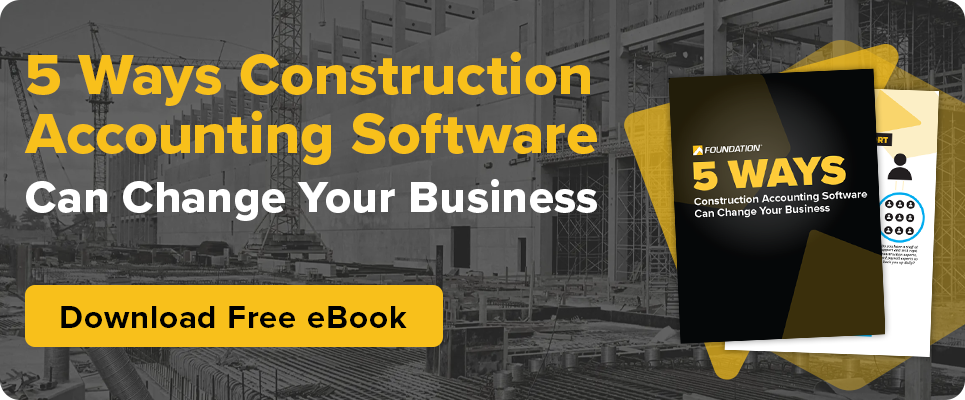
Key Takeaways for Contractors Implementing Construction Management Technology:
- Consider factors like data migration and user database size. Pilot programs and regular check-ins with the vendor can help mitigate risks.
- Provide adequate support and opportunities for employees and project teams to become proficient in the new system. Assign team members to the crucial role of experts to assist others.
- Account for ongoing costs such as maintenance, upgrades, and tech support. Consider potential hidden fees and the impact of downtime on daily operations.
- Obtain a detailed breakdown from the vendor, including potential future expenses. Establish a budget for unexpected costs.
- Partner with a reputable vendor who values a long-term relationship. Ask for references from other construction companies to understand potential challenges.

Set a Realistic Timeframe
Once you’ve chosen the right construction management technology for your business, the next crucial step is to develop a feasible implementation plan.
While many software vendors will assist with implementation, business owners and managers play a vital role in minimizing risk. Start by consulting with your current vendor about data migration options.
For example, transferring historical data from your current provider or system to the new one may be more complex than expected — will it be automated or require manual entry?
Factors like the size of your vendor or customer database can significantly impact the timeline.
Implement a Pilot Program
One way to overcome these obstacles is by starting with a pilot program for a small group of users, which allows you to identify potential challenges before a full rollout.
Additionally, scheduling regular check-ins with your vendor during the early stages can help ensure that issues are addressed quickly and efficiently.
Train Employees Carefully
Training is another area that needs careful planning. It’s unrealistic to expect employees to master a new system after just a day or two of training.
Without support from management emphasizing the importance of training, employees may not invest the necessary time to learn the new system.
Industry experts recommend implementing a structured training staff program to address skills gaps while ensuring daily operations continue smoothly.
Implement a structured training program that allows users to gradually gain proficiency while ensuring they have the support needed to manage their regular tasks.
To further facilitate training success, you can assign in-house teams who will become experts on the system and assist others as they learn.
This creates a supportive learning environment and reduces the pressure on individuals.
Set a Realistic Budget
The cost of adopting new technology in the construction space often goes beyond the initial purchase price. Sophisticated systems typically come with additional expenses such as maintenance fees, upgrades, and tech support.
Be sure to ask yourself these questions prior to implementation:
- Does your budget account for these ongoing costs?
- What about adding new users or incorporating additional modules?
- Are there hidden fees for future upgrades or customizations?
- How much downtime will the implementation process require, and how will it impact daily operations?
- Does your team have the capacity and skill set to manage the implementation, or will you need external support?
- What type of ongoing support and training will the service provider offer after the system is live?
Overlooking these factors can lead to significant financial strain down the road.
Request a Cost Breakdown
One way to address this is by requesting a detailed cost breakdown from your vendor, including potential future expenses.
You should also establish a budget for unexpected costs, such as additional training or support during the implementation phase.
Research Vendors Thoroughly
Partnering with a reputable vendor who values a long-term relationship can help ensure that you receive transparent pricing and continued support.
It’s important to research vendors thoroughly, as poor planning or misleading pricing can lead to technology abandonment.
The transition period can be smoother when partnering with a reputable vendor.
Contractors often report that projects fail because they didn’t account for escalating costs or because the product didn’t live up to its promises.
To mitigate this, consider asking for references from other construction companies that have successfully implemented the same technology.
Understanding how others have navigated potential challenges will give you insight into what to expect.
See How FOUNDATION® Can Help You Transition Smoothly to New Technology
Implementing new technology in the construction industry requires planning, time, and financial commitment.
Like moving into a new home, the process can be daunting, but with realistic expectations, careful budgeting, and strong support, it will eventually lead to a better, more efficient system for your business.
Don’t rush the process — dedicating the proper resources upfront will prevent setbacks and ensure success in the long term.
Regular check-ins with employees throughout the transition process are crucial to ensure a smooth adaptation. Gather feedback on any challenges or concerns they may be experiencing.
Follow up after the transition to assess their comfort level with the new construction technology and identify areas for further support.
Or consider implementing a technology integration program to ensure seamless compatibility between the new technology and any existing systems that are being retained. This may involve:
- Updates
- Modifications
- The use of specialized construction software to bridge any gaps
And if you’re looking for technology that can help, check out FOUNDATION construction accounting software! Our software solutions are designed to help construction firms streamline processes, improve accuracy, and drive profitability.
We understand the challenges of implementing new technology in construction. A successful technology transition involves not only the implementation of new tools but also the provision of adequate training and support.
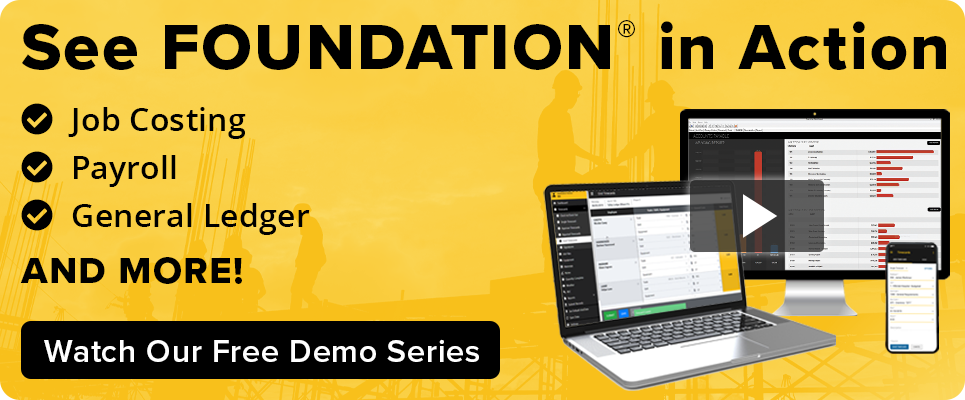
That’s why we offer comprehensive training and education plans that will equip your team with the skills necessary to effectively utilize the new technology. With our expert consulting services, we can guide you through the entire implementation process, ensuring a smooth and efficient transition.
Whether you’re looking to improve your budgeting and forecasting capabilities, streamline job costing processes, or enhance your financial reporting, FOUNDATION provides the tools and resources you need to succeed.
Chat with a specialist today to learn more!
Share Article
Keep on current news in the construction industry. Subscribe to free eNews!
Our Top 3 YouTube Videos
Learn about our software more in depth with product overviews, demos, and much more!
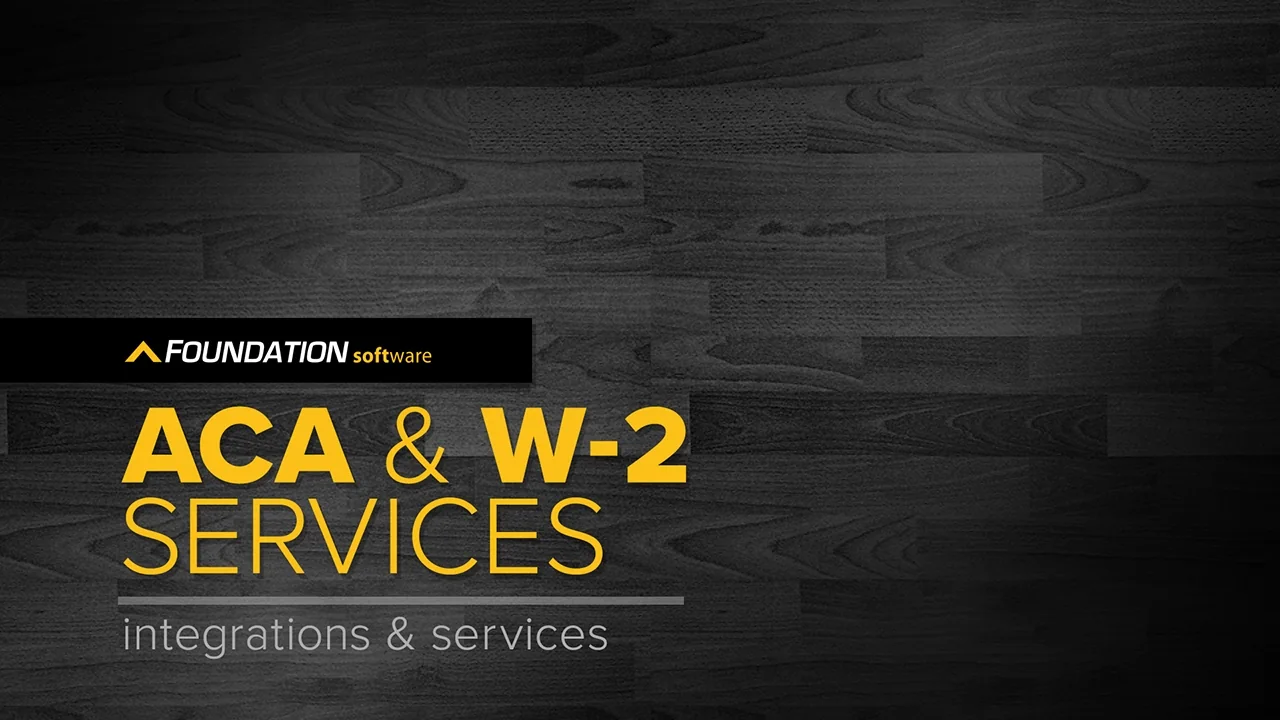
Our ACA reporting & e-filing services include official 1094-C and 1095-C IRS reporting, optional e-filing (no applying for a TCC code required), mailing to your employees and experienced support to help you.
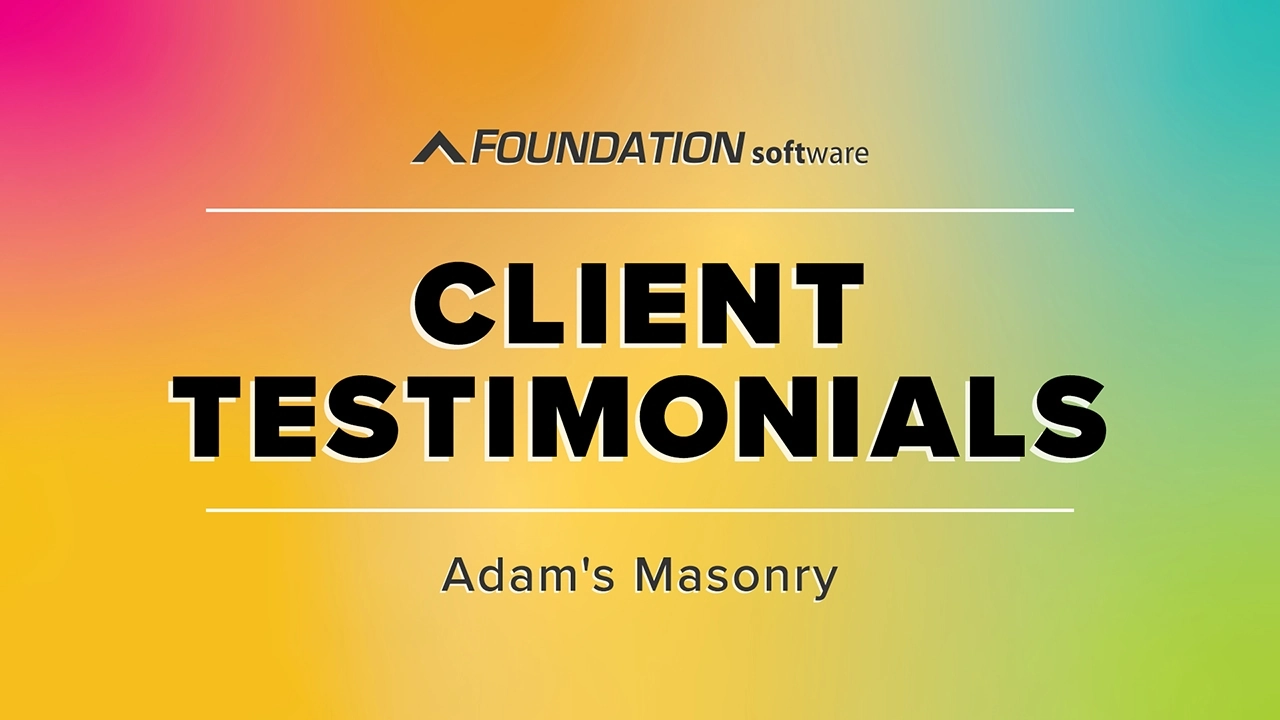
There are plenty of reasons to make FOUNDATION your choice for job cost accounting and construction management software — just ask our clients!
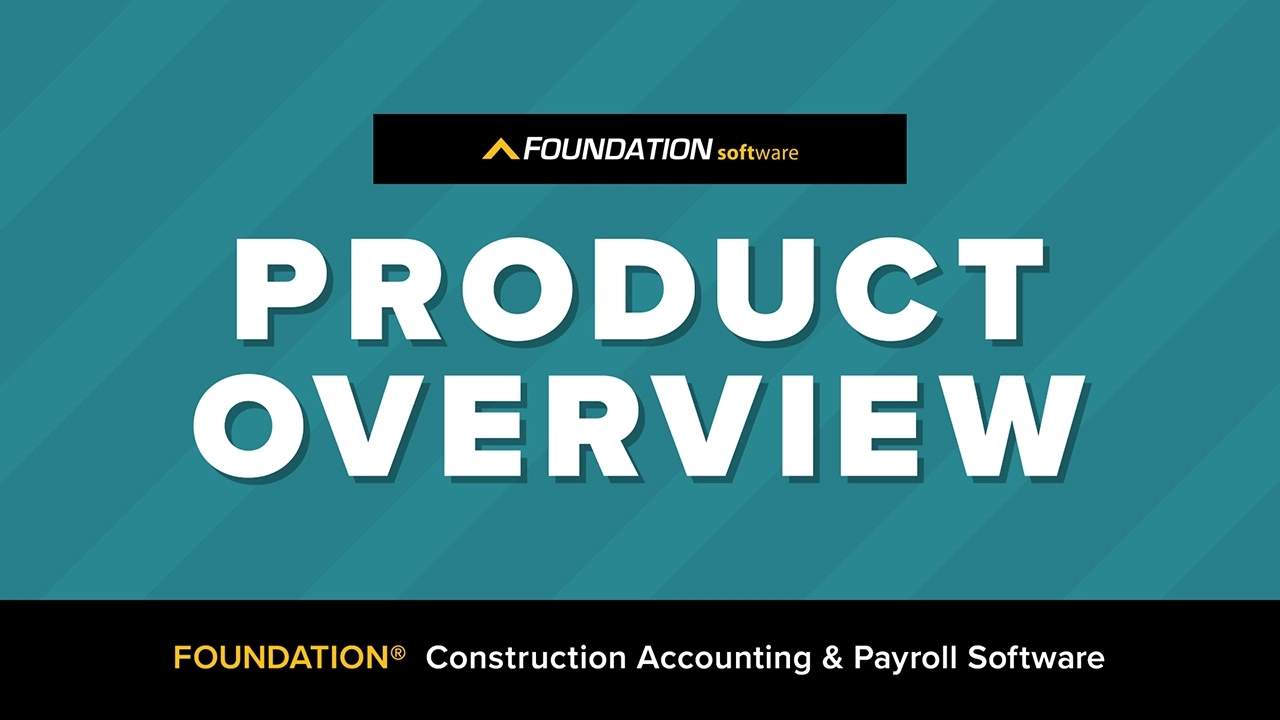
From job cost accounting software, to construction-specific payroll. Get an overview on your next all-in-one back-office solution.


